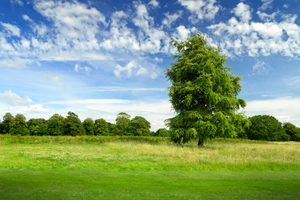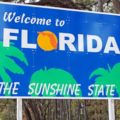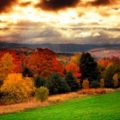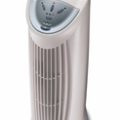
As we've previously reported on this blog, individuals who suffer from seasonal allergies need to be aware that the amount of allergens in the air this year is higher than normal in many parts of the United States. On May 1, Ed Curran, a meteorologist for CBS Chicago, reported that the tree pollen count in the area is particularly elevated. According to allergy specialist Dr. Mark Jacobson, this allergen can travel hundreds of miles from the tree it came from, so even those who aren't surrounded by greenery are at risk.
Dr. Jacobson suggests keeping the windows closed on days when the pollen is at its worst and taking a shower and changing your clothes before you go to sleep, so you're not tracking the allergen into your bed and breathing it in all night.
If your pollen allergies are particularly severe, you may even react to a similar protein found in fruits and vegetables, so you should be wary of this possibility.
"When you eat these fruits and vegetables raw it's as if you were eating the pollen," Dr. Jacobson told the source. "We see this with apples, peaches, plums, and then a lot of the melon fruits – cantaloupe, honeydew – and then also with bananas."
If you reside in Chicago or anywhere else where pollen counts are high, there are other actions you can take to reduce your symptoms this spring and summer – in addition to seeing a specialist and using any medication you've been prescribed, of course. You may want to consider investing in a whole house air purifier, which removes allergens directly from the air and makes it easier for you to breathe inside your home.









